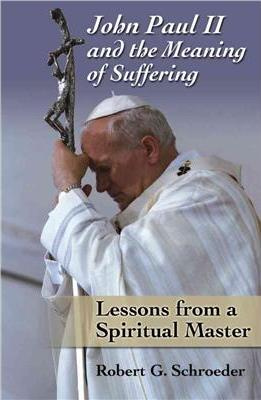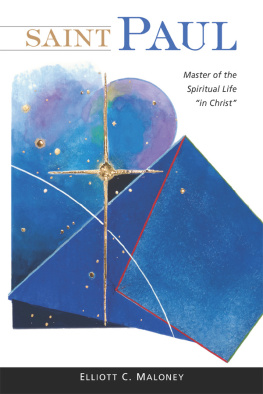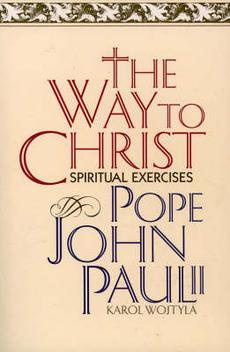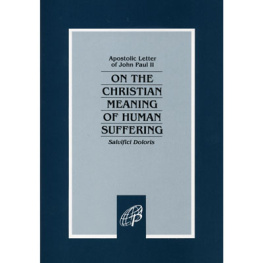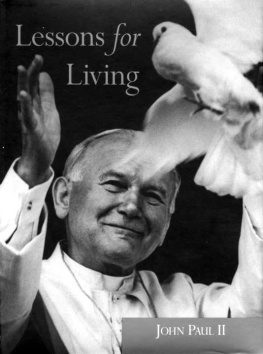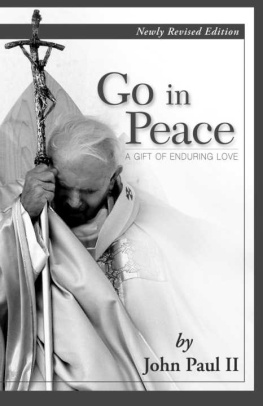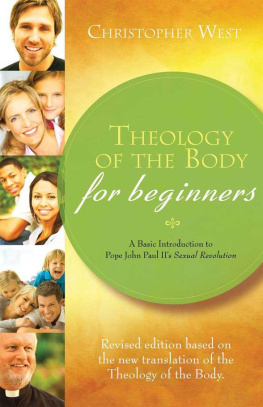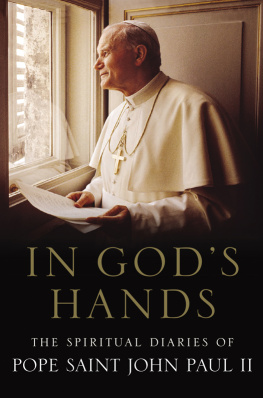JOHN PAUL II
and the
MEANING OF SUFFERING
Lessons from a Spiritual Master
by Robert G. Schroeder

Our Sunday VisitorPublishing Division
Our Sunday Visitor, Inc.Huntington, Indiana 46750
The Scripture citationsused in this work (except for those quoted directly from Vatican documents) aretaken from the SecondCatholic Edition of the Revised Standard Version of the Bible (RSV), copyright 1965, 1966, 2006, by the Division of Christian Education ofthe National Council of the Churches of Christ in the United States of America.Used by permission. All rights reserved.
Catechism excerpts are from the English translation of the Catechism of the Catholic Church,Second Edition, for use in the United States of America,copyright 1994 and 1997, United States Catholic Conference Libreria Editrice Vaticana . Used by permission. All rights reserved.
Extracts from Salvifici Doloris copyright 2007 Libreria Editrice Vaticana . Used with permission.
English translations of Gaudium et Spes fromthe Vatican Web site, www.vatican.va.
Every reasonable efforthas been made to determine copyright holders of excerpted materials and tosecure permissions as needed. If any copyrighted materials have beeninadvertently used in this work without proper credit being given in one formor another, please notify Our Sunday Visitor in writing so that futureprintings of this work may be corrected accordingly.
Copyright 2008 by OurSunday Visitor Publishing Division, Our Sunday Visitor, Inc. Published 2008
All rights reserved. Withthe exception of short excerpts for critical reviews, no part of this work maybe reproduced or transmitted in any form or by any means whatsoever withoutpermission in writing from the publisher. Write:
Our Sunday VisitorPublishing Division Our Sunday Visitor, Inc.
200 Noll PlazaHuntington, IN 46750
ISBN: 978-1-59276-314-6(Inventory No. T413) LCCN: 2007939157
Cover design by RebeccaJ. Heaston
Cover photo: L 'Osservatore Romano
Interior design by Sherri L. Hoffman
Dedication
ToSarah, my wife, and my mom and dad, whose faith and courage amidst sufferinghave been an inspiration.
Andto my precious children, Elizabeth, Dominic, Bobby, and Sam, who have filled myheart with the joy of fatherhood.
Table of Contents
Introduction
None of us can avoid the sting ofsuffering. Regardless of our age, race, religion, occupation, or IQ, sufferingis always there following us around like a black cloud that rains down misery.It hurts us and the ones we love. It shakes our spirit and scandalizes our hope.It reminds us of the evil in our midst and our need for liberation.
Aspeople of faith in a God who gives meaning to our lives, we struggle with thesenselessness of suffering. Suffering doesn't always work like we think itshould, striking down the wicked and sparing the good. Bending the laws ofjustice at whim, suffering victimizes who it wants to even the most innocentamong us without hesitation or conscience. Such absurdity often leaves uswanting for any black-and-white explanations for our pain. And it seems themore we try to unravel suffering's mysterious ways, the more they slip throughour mind's grasp and elude our search for meaning. Yet our hearts still cry outfor answers.
Questions
Whydoes a loving God allow us to suffer?
Didwe do something to deserve our suffering?
Doesour pain serve any purpose in God's plan?
Canfaith give us any reasons to hope?
These are the questions that rack ourminds and jab at our souls. They press down hard on us to respond and leave uswondering: are there any real answers that can help us cope with the trials andtribulations of yesterday, today, and tomorrow?
Inunison with the entire Christian tradition, Pope John Paul II replies in theaffirmative. We can indeed find meaning in suffering provided we look for itin the treasury of divine wisdom fully revealed in Jesus Christ. As the SecondVatican Council has stated, only in Jesus do "the riddles of sorrow anddeath grow meaningful." This Christian conviction that faith sheds light onthe deep mystery of suffering means that it is right for us to seek answers inhope. For only in searching can we find the Gospel, or good news, that Jesus'life, death, and resurrection give saving meaning to our many sufferings inthis life.
Lessons from aSpiritual Master
John Paul gifted the world with abeautiful meditation on this saving meaning of suffering in his ApostolicLetter, Salvifici Doloris (Latin for "Saving Suffering"). The letter, the subtitle of whichtranslates to English as On theChristian Meaning of Human Suffering, was dedicated February 11,1984, on the Feast of Our Lady of Lourdes. With the wisdom of a spiritualmaster, the authority of the Vicar of Christ, and the compassion of one who hasknown intense suffering himself, the pope takes great care in this document toteach us what the Church believes about suffering. In its pages, we find amodern-day gospel on suffering a message of good news and hope to all whostand scarred by the past, wounded by the present, and fearful of the future.
I first stumbled onto this letter twentyyears after its writing, during a time in my life when I was deeply hurting.Having just celebrated two years of marriage to my wife, Sarah, I was slowlyrecovering from an illness that incapacitated me for ten months. At the sametime, I was grieving the death of two of our children to miscarriages. Sam, ourfirst baby, died six weeks after he was conceived; Bobby, our second child,died live months after conception and had to be delivered at the hospital.
In the wake of these personal tragedies,I felt consumed by suffering, which sent me headfirst into a downward spiral ofsorrow, confusion, and anger. So I turned to my faith the rock upon which Ihave tried to build my life to help me find meaning in my pain. Over mythirty years as a Catholic, I had heard many spiritual quips from the pulpitabout "offering up suffering," "sharing in the suffering ofChrist," and "uniting suffering to the Cross." But to me, these ideaswere like skeletons without any flesh on their bones. What exactly did theymean, where did God reveal them, and how could they help me get through anotherday? Hungry for answers, I consulted the Bible, as well as Christian books andarticles, with the hope of finding sustentative spiritual food. But the crypticsayings and sometimes superficial explanations of suffering that I read seemedirrelevant to my personal circumstances.
It was at this critical juncture that Idiscovered John Paul's Salvifici Doloris , which led me in a direction of healing. As I read the letter and allowed myselfto become the pope's student, I came to see the Christian meaning of sufferingin its full light for the first time and found insights into many of thequestions that were disturbing my spiritual peace.
Make no mistake this act of opening myself to the wisdom of John Paul and the Church throughstudy and prayerful reflection didn't make my suffering vanish, but it did helpme understand the truths that God has revealed about suffering. In doing so, Iwas able to gradually replace the heavy burden of despair I was carrying withthe lighter yolk of Gospel hope.
Six Lessons
Such an experience inspired this book,which attempts to present John Paul's most important teachings in Salvifici Doloris . In the apostolic letter, thepope shares a wealth of spiritual wisdom that I believe can bring knowledge,healing, and peace for those seeking meaning in suffering.
While I highly recommend reading Salvifici Doloris in its entirety, I have alsocome to realize from my discussions with others that some of the material canbe difficult to follow for the layperson without formal theological training.So, within these pages, I have tried to respond by distilling the pope'sessential points from Salvifici Doloris and explaining them in six lessons that readers can easily remember and apply.Each lesson contains a pastoral discussion of key themes in Salvifici Doloris ; at the same time, I have also incorporatedpassages from Scripture, thoughts from other great writers and saints, and myown stories and reflections, in hope that this approach enriches a reader'sappreciation and understanding of John Paul's teaching.

